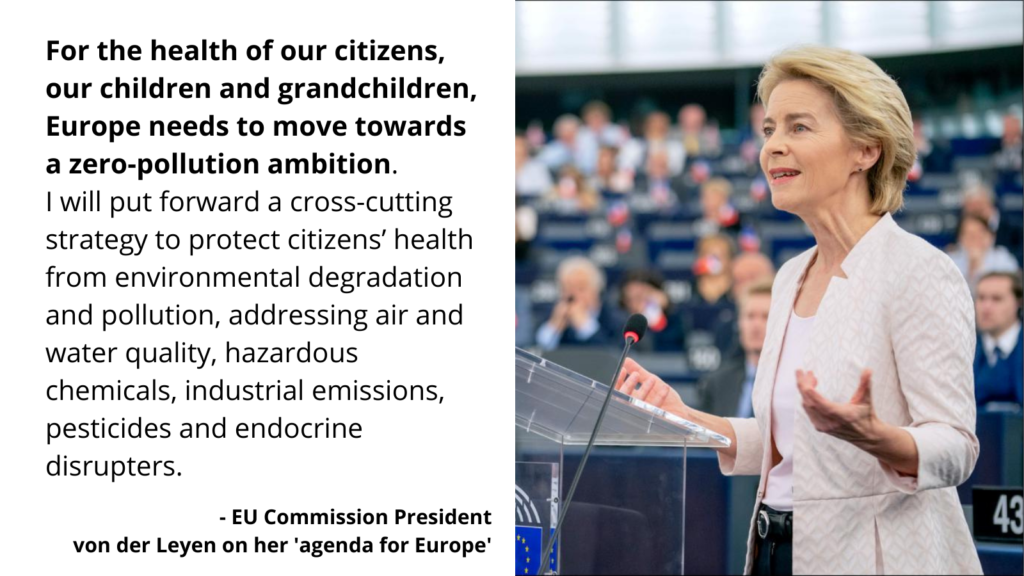The EU’s proposed 2040 climate target to reduce domestic emissions by 90% - while allowing up to 3% to be met through international carbon credits – risks undermining health protections. The Health and Environment Alliance calls on member states to strengthen their climate commitments in order to protect health, rather than delay and weaken overdue action.
The European Commission is finalising its strategy to overhaul Europe’s chemicals regulations. The so-called EU Chemicals Strategy for Sustainability, expected to be launched on 14th October 2020, could be the most transformative chemical policy initiative at European level in the last 20 years.
However, recently leaked documents have revealed major internal dissensions within the European Commission about the development of this strategy within the European Commission. These documents suggest a tendency from parts of the European Commission towards minimising existing scientific evidence about health and environmental effects of a significant number of chemicals currently on the European market.
These revelations are worrying because they suggest that ambitions to adopt chemical legislations that ensure higher levels of protection are in danger. However, under the EU Green Deal, the EU Commission President Ursula von der Leyen has committed to a Zero Pollution ambition – and the chemicals strategy is an important pillar to reach this objective.

This is why we (WeMove.EU, the Health and Environment Alliance – HEAL, and the European Environmental Bureau – EEB) are calling on Frans Timmermans, Executive Vice President of the European Commission, to guarantee that the new EU Chemicals Strategy fully lives up to the Commission’s commitments towards ambitions towards reaching zero pollution for a toxic-free environment. The new strategy must rely upon scientific evidence about all health and environmental effects of chemicals.
Will you help us say no to a toxic Europe?
Sign the petition in English, French, Spanish, German, Portuguese, Italian or Polish.
Evidence of the real-life effects of harmful chemicals on our health
- According to Eurostats data, two-third of the chemicals produced in the EU are hazardous to health. This is worrying considering that chemical production is expected to double by 2030.
- A recent Eurobarometer shows two in three citizens are concerned about exposure to hazardous chemicals, less than half of them feels well informed about the potential dangers of chemicals in products, and half of them think that the current level of regulations and standards should be increased.
- According to the World Health Organization, 1.6 million deaths in the European region are linked to the environment. Growing evidence indicates that early life exposure to environmental risks, such as chemicals, radiation and air pollutants, might increase non-communicable diseases (NCD) risk throughout life. Because NCDs are the leading cause of preventable death and disease worldwide, acting to prevent chemical pollution is an underestimated health opportunity.
- The costs of inaction against harmful chemicals are a threat to Europeans’ health and the economy:
- The health costs of exposure to endocrine disrupting chemicals (EDCS) are estimated to be at least 163 billion Euros per year in Europe.
- Human exposure to preventable environmental chemicals is estimated to cost 10% of the global GDP in health costs.
- The costs of inaction against per-and polyfluoroalkyl (PFAS) are estimated to be between 52 –84 billion Euros for all countries in the European Economic Area.
- Some types of chemicals can act at very low doses, with exposure causing irreversible health outcomes – such as hormonal cancers, metabolism disorders such as obesity or diabetes, or behavioural disorders. There can even sometimes exist large time lags, even generations, between exposure to harmful chemicals and the materialising of their impacts. Preventing exposure should be Europe’s main objective in order to prevent diseases and ill-health.


